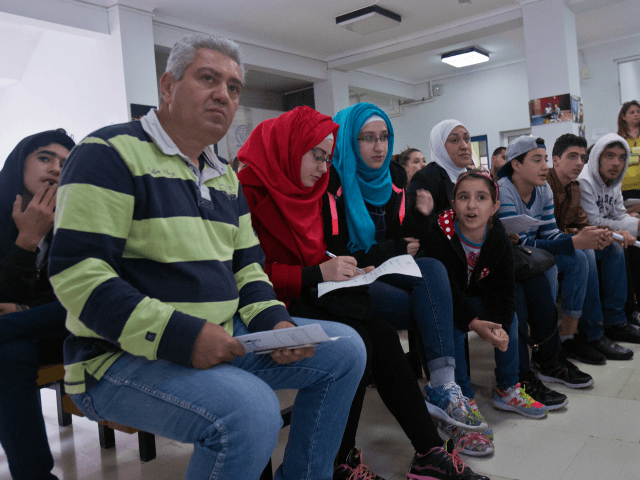The German Federal Government has estimated that family reunion rules will see Germany receive hundreds of thousands more Syrian and Iraqi migrants this year.
The Ministry of the Interior announced that it granted asylum to 90,389 people in the first six months of 2017, and expects that Germany will receive a total of 180,000 migrants this year – a fraction of the influx of almost a million who the country admitted in 2015.
However, Die Welt reports the situation — with regards to housing, welfare, education, integration, and crime — will be far more demanding for taxpayers than official figures suggest, as they do not take into account the migrants who are flown into Germany as a result of family reunification rules.
Responding to a request by the German broadsheet, the Federal Foreign Office said it estimates the process will enable an additional 200,000 to 300,000 to travel to the European nation.
According to the Foreign Office, the calculation is based on the number of visas which have already been issued, and on how many applications the department expects based on patterns currently seen with regards to average family reunification numbers for Syrian refugees.
Syrian Arrivals In Germany To Double As Family Reunification Add 500,000 https://t.co/GC52jQqhwM pic.twitter.com/HZuD24YVph
— Breitbart London (@BreitbartLondon) June 9, 2016
Though Germany has now suspended the possibility of family reunification for many newcomers until March 2018, authorities are still overwhelmed by the huge backlog of claims which come as a result of Angela Merkel’s move to open the country’s borders in 2015.
As a result of this, German embassies in Syria and its neighbouring countries reported a “dramatic increase in demand for appointments concerning people applying for family immigration visas”.
The news of further migration to Germany comes as local media reported a new study which warns that the country faces an education crisis, caused by a “boom in pupils that almost nobody predicted”.
According to the Bertelsmann Foundation, the combination of mass migration and increasing birth rates will lead to a surge in the population of people aged under 19 from just over 14 million in 2015 to almost 15 million in 2030.
The foundation’s study tells Germany to expect to fork out €4.7 billion more each year on education, and warns that the country faces a shortfall of around 42,800 full-time teachers by 2030 unless it prepares to meet the new demographic challenges.

COMMENTS
Please let us know if you're having issues with commenting.